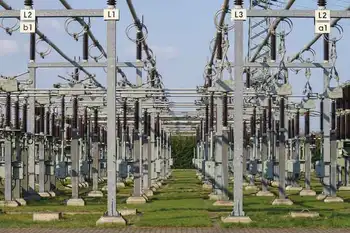Spain considers extending life of nuclear plants
By Reuters
Arc Flash Training CSA Z462 - Electrical Safety Essentials
Our customized live online or in‑person group training can be delivered to your staff at your location.

- Live Online
- 6 hours Instructor-led
- Group Training Available
An Industry Ministry statement said it had drawn up the bill tabled at a weekly cabinet meeting to establish a "transparent, stable and predetermined" legal framework for nuclear plant operating permits.
The bill proposes an "extraordinary procedure" to allow nuclear plants to run for more than 40 years unless the CSN nuclear watchdog should rule they are unsafe.
Earlier this year, the government agreed to allow the aging Garona plant to run until 2013, by which time it will have been working for 42 years.
Prior to the decision, the CSN nuclear watchdog queried the legality of renewing the nuclear plant's operating permit for the four years to 2013 rather than a standard 10 years.
The government also had the option of closing the plant forthwith, but decided to keep it open in order not to add to Spain's long and growing dole queues.
Apart from Garona, Spain's other seven nuclear plants — which provide about 20 percent of the country's electricity — will not turn 40 until between 2021 and 2028.
Although the Socialist government had recently suggested it would extend the plants' working lives, it has also repeatedly said it will not support building new ones.
Neither major party proposed building new nuclear plants in elections last year, however the opposition Popular Party says it will keep Garona working past 2013 if it is returned to power.
Greenpeace spokesman Carlos Bravo said the bill ran contrary to another recent bill which proposes underpinning long-term economic growth with booming renewable energy sources.
"The Ministry bill contradicts the provisions of the Sustainable Economy Bill. This makes no sense, it is incoherent," he said.
Spain has become the world's third-largest producer of wind power and the second-biggest of solar in a bid to cut its heavy dependence on imported fuels and greenhouse gas emissions.
The bill also proposed a long-delayed call for bids from local authorities to house a centralized site for storing nuclear waste — as the project is known in Spanish — will cost 540 million euros (US $773 million) and cover 20 hectares.
The United Nations' nuclear watchdog, the IAEA, last year recommended Spain step up efforts to find a dedicated site for storing high-level nuclear waste.











